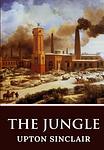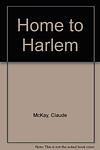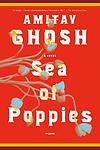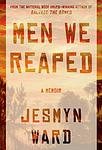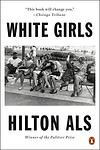The Greatest "Social & Cultural Fiction, Social sciences" Books of All Time
Click to learn how this list is calculated.
This list represents a comprehensive and trusted collection of the greatest books. Developed through a specialized algorithm, it brings together 300 'best of' book lists to form a definitive guide to the world's most acclaimed books. For those interested in how these books are chosen, additional details can be found on the rankings page.
Genres
Social & Cultural Fiction is a literary category that encompasses novels and stories that delve into the complexities of society and culture, exploring themes such as class, race, gender, and identity within specific social contexts. These narratives often provide a lens through which readers can examine the intricacies of human relationships and the impact of cultural norms and societal structures on individuals and communities. By offering a fictional yet reflective portrayal of real-world social dynamics, this genre invites readers to gain a deeper understanding of the diverse experiences that shape our world. Authors in this category frequently use their characters and settings to comment on contemporary issues, challenge prevailing ideologies, and provoke thought about the possibility of social change, making Social & Cultural Fiction a powerful tool for empathy and a mirror for the ever-evolving human condition.
Social sciences is a broad category of books that encompasses the study of human society and social relationships. This includes disciplines such as sociology, psychology, anthropology, economics, political science, and history. Social science books aim to understand and explain human behavior, social structures, and cultural norms. They explore topics such as social inequality, power dynamics, social change, and the impact of technology on society. Social science books provide valuable insights into the complexities of human interactions and offer a deeper understanding of the world we live in.
Countries
Date Range
Reading Statistics
Click the button below to see how many of these books you've read!
Download
If you're interested in downloading this list as a CSV file for use in a spreadsheet application, you can easily do so by clicking the button below. Please note that to ensure a manageable file size and faster download, the CSV will include details for only the first 500 books.
Download-
1. Great Expectations by Charles Dickens
A young orphan boy, living with his cruel older sister and her kind blacksmith husband, has an encounter with an escaped convict that changes his life. Later, he becomes the protégé of a wealthy but reclusive woman and falls in love with her adopted daughter. He then learns that an anonymous benefactor has left him a fortune, leading him to believe that his benefactor is the reclusive woman and that she intends for him to marry her adopted daughter. He moves to London to become a gentleman, but his great expectations are ultimately shattered when he learns the true identity of his benefactor and the reality of his love interest.
-
2. The Jungle by Upton Sinclair
This novel exposes the harsh conditions and exploited lives of immigrants in the United States in Chicago and similar industrialized cities. The protagonist, a young Lithuanian immigrant, works in the meatpacking industry and experiences the extreme poverty, poor working conditions, and lack of social services. The narrative explores the corruption of the American meatpacking industry in the early 20th century and the hardships faced by the working class, leading to significant public outcry that contributed to the passage of the Pure Food and Drug Act.
-
3. Let Us Now Praise Famous Men by James Agee
This book is an in-depth examination of the lives of three tenant families in the South during the Great Depression. The author combines detailed descriptions, journalistic reporting, and poetic prose to capture the harsh realities of poverty, racial discrimination, and the struggle for survival. The book also includes evocative photographs that further illustrate the living conditions and daily lives of the families. The work is a profound exploration of the human condition, offering a raw and unflinching look at the effects of economic and social injustice.
-
4. The Go-Between by L. P. Hartley
Set in the summer of 1900, the novel follows a young boy who visits a friend's family estate and becomes an unwitting messenger in an illicit affair between his friend's older sister and a local farmer. As the boy navigates the complexities of the adult world and the rigid class system of the time, he experiences a loss of innocence that has lasting effects on his life. The narrative explores themes of nostalgia, memory, and the corrupting power of class and wealth.
-
5. The Underdogs by Mariano Azuela
"The Underdogs" is a novel set during the Mexican Revolution, depicting the conflict from the perspective of the peasants who fought in it. The story follows the journey of a poor, illiterate Indian named Demetrio Macias, who becomes a reluctant leader in the rebellion against the federal government. The narrative explores the brutality and chaos of war, the corruption of power, and the often futile nature of rebellion, painting a grim picture of the human cost of revolution.
-
6. Studs Lonigan by James T. Farrell
"Studs Lonigan" is a trilogy that follows the life of an Irish-American man growing up in the South Side of Chicago. His life is marked by aimlessness and self-destruction, as he navigates through adolescence into adulthood against the backdrop of the Great Depression. The protagonist's struggle with his own ambitions, societal pressures, and personal weaknesses provides a stark examination of the human condition and the American Dream.
-
7. The Swimming-Pool Library by Alan Hollinghurst
The novel follows a young, privileged, and carefree gay man living in London. His life of leisure is interrupted when he saves the life of an elderly man, who in return asks him to write his biography. As he delves into the man's past, he uncovers a hidden history of gay life that is much darker and less accepted than the one he is used to, challenging his understanding of personal and societal progress.
-
8. Quicksand by Nella Larsen
"Quicksand" is a semi-autobiographical novel about a mixed-race woman named Helga Crane who, feeling out of place in both African-American and white societies, embarks on a journey of self-discovery. From the Southern United States to Denmark and back, she struggles with racial identity, sexual repression, and societal expectations, eventually marrying a reverend and becoming disillusioned with her life as a preacher's wife in the rural South. The novel explores themes of racial identity, class, and gender in the early 20th century.
-
9. Los lanzallamas by Roberto Arlt
"Los lanzallamas" is a novel set in Buenos Aires in the 1920s, revolving around the lives of a group of characters who are marginalized by society. The protagonist, a failed inventor turned anarchist, is manipulated into participating in a plot to overthrow the government and establish a new social order. The plot fails, leading to tragic consequences for the characters involved. The novel explores themes of alienation, disillusionment, and the struggle for individual freedom in a repressive society.
-
10. Deep Rivers by José María Arguedas
"Deep Rivers" is a novel that follows the life of a young boy who is caught between the Spanish and indigenous cultures of Peru. The protagonist is sent to a Catholic boarding school, where he experiences the harsh realities of social and racial divisions within the country. As he navigates these challenging circumstances, he develops a deep connection with the indigenous Andean culture and its spiritual relationship with nature. The novel is a profound exploration of identity, culture, and the struggle of indigenous peoples in a colonized society.
-
11. Compassion by Benito Pérez Galdós
"Compassion" is a compelling narrative that explores the themes of poverty, compassion, and human morality. Set in 19th-century Spain, it follows the story of a wealthy woman who, after an encounter with a poor, blind beggar, is moved to reassess her life and the societal norms of the time. This chance meeting prompts her to question the established social order and her privileged position within it, leading to a profound personal transformation. This novel is a poignant exploration of human empathy and the societal structures that often hinder its expression.
-
12. Death in Rome by Wolfgang Koeppen
"Death in Rome" is a post-World War II novel that explores the lives of a German family, their friends, and associates during a reunion in Rome. Each character is representative of a different aspect of German society, and their interactions and experiences in the city serve as a commentary on the nation's struggle to come to terms with its recent past. The book also explores the themes of guilt, denial, and the lingering effects of war.
-
13. Ancestral Voices by Etienne van Heerden
"Ancestral Voices" is a haunting novel set in South Africa during the apartheid era. The story follows a young boy who grows up in a small rural town, navigating a complex web of familial relationships and secrets. As he matures, he becomes increasingly aware of the racial and social injustices that surround him. The book explores themes of identity, heritage, and the harsh realities of life under apartheid, all weaved together with a deep sense of the mystical and the supernatural.
-
14. Walden Two by B. F. Skinner
"Walden Two" is a utopian novel that presents an experimental community where happiness, productivity, and quality of life are the main goals. The community is guided by the principles of behavioral science, and it emphasizes the importance of cultural and environmental conditioning in shaping human behavior. The book explores the idea of an ideal society, free from the problems of modern civilization, through the eyes of a professor and his two ex-students who visit the community.
-
15. Home to Harlem by Claude McKay
This novel tells the story of Jake Brown, a World War I deserter who returns to Harlem, and his love affair with a cabaret dancer named Felice. Jake's journey, which takes him from seedy bars to affluent white neighborhoods, paints a vivid picture of Harlem's vibrant and diverse culture during the Harlem Renaissance. The narrative also explores the lives of other characters in the community, providing a rich and complex portrait of black life in 1920s New York.
-
16. Sea of Poppies by Amitav Ghosh
"Sea of Poppies" is a historical novel set in the 1830s, just before the Opium Wars. It traces the intertwined lives of a diverse group of characters, from a raja turned convict, a widowed poppy grower, a French orphan, to a mulatto American freedman, all of whom are brought together on the Ibis, a former slave ship now used for transporting opium. The story explores the social and economic impact of the opium trade, colonialism, and the caste system, while also delving into the personal histories, relationships, and struggles of the characters.
-
17. Men We Reaped by Jesmyn Ward
This memoir is a poignant exploration of the author's life growing up in a poor, rural, predominantly black community in the Southern United States, and the tragic deaths of five young men close to her, including her brother. Through her personal experiences, the author provides a powerful critique of systemic and institutional racism, poverty, and the lack of opportunities for black men in America. The narrative weaves together these stories of loss, revealing the devastating impact of societal inequities on marginalized communities.
-
18. White Girls by Hilton Als
"White Girls" is a collection of essays that explore the concept of "white girls" as the author sees it - a cultural and racial construct, rather than a literal description. The book delves into the author's personal experiences, pop culture, history, and his own identity as a gay black man. It examines figures from pop culture, literature, and the author's personal life, including Truman Capote, Michael Jackson, and the author's own sister, to explore themes of race, gender, identity, and the love and loss that comes with friendship.
-
19. Autobiography of an Ex-Colored Man by James Weldon Johnson
The book is a fictional autobiography of a biracial man living in post-Reconstruction America. The protagonist, who is born to a white father and black mother, initially embraces his black heritage and becomes a successful ragtime musician. However, after witnessing a brutal racial attack, he decides to pass as white to avoid racial prejudice. Despite his financial success and comfortable life in white society, he struggles with his decision to deny his African-American heritage.
-
20. War Dances by Sherman Alexie
"War Dances" is a collection of short stories and poems that explore the lives of Native Americans in contemporary society. The narratives delve into various themes such as identity, culture, family, love, and loss. The stories are filled with humor, heartbreak, and wisdom, painting a vivid picture of the unique struggles and experiences faced by modern Native Americans.
Reading Statistics
Click the button below to see how many of these books you've read!
Download
If you're interested in downloading this list as a CSV file for use in a spreadsheet application, you can easily do so by clicking the button below. Please note that to ensure a manageable file size and faster download, the CSV will include details for only the first 500 books.
Download
